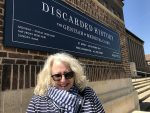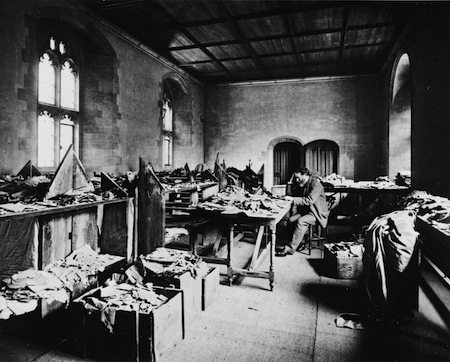We have a lot of interesting Jewish educational opportunities in Winnipeg, where I live. If you made a big effort, you could be busy learning, attending lectures, events and classes much of the time. It might be possible to find something to do nearly every day of the week, but most of us don’t or can’t.
Maybe you can’t get out due to health issues or because you’re the caretaker for others. Perhaps it’s just too dark and cold right now, and you aren’t all that keen about going out after dinner. (I hear you!) There are many reasons to say no, we can’t manage something.
The last few weeks, I’ve found myself in this situation. Someone in my household got sick, or I did. The weather was just too cold. I wanted to hibernate. I wasn’t sure the car would start or the event cost too much or … you get the picture.
However, I found a solution that has really enriched this season. There were some books on Jewish topics that friends suggested online, and even a book written by someone I knew. I couldn’t afford to buy them all, nor did I know yet that I wanted to own them. This is where the public library is an amazing resource. I had all the books delivered to one library, where they sat on the holds shelf with my last name on them.
When I checked them out, I worried that I would not be able to finish them in time. Maybe I was being overambitious. Not to worry, it turns out. Most of the books were finished long before they were due – they were that good.
What were they? Well, now that I’ve read these books, I’m happy to make a couple recommendations! The first was Sacred Treasure – The Cairo Genizah: The Amazing Discoveries of Forgotten Jewish History in an Egyptian Synagogue Attic. Genizahs are where some Jewish communities stored their old (both holy and mundane) documents for many centuries. Written by Rabbi Mark Glickman, who I studied with at summer camp as a teenager, this book was the Jewish equivalent to an Indiana Jones story. I love reading about Jewish social history and, to be honest, it made Shabbat and several sick days absolutely a joy. I told all my friends I was geeking out on the genizah book!
The second book I loved was The Unorthodox Match by Naomi Ragen. Ragen is a beloved American-Israeli novelist, and this book didn’t let me down. It was both a love story and a realistic account of how some Chassidic and ultra-Orthodox communities operate. There’s a great divide. These groups both encourage ba’alei teshuvah (those who “return” to more traditional Judaism), but they also ostracize them, as not being the same as those who were raised from birth in these communities. The novel emphasizes the differences between what Judaism teaches about accepting converts and strangers and how communities actually act, sometimes alienating those who seek to be included.
After reading these books, I was struck by how I was able to enrich my Jewish learning simply by using the library and the couch when it was so cold out. Yet, if cities like mine cannot figure out their finances, it’s possible that some of our public libraries (along with wading pools, swimming pools, arenas, etc.) will soon be closed due to budget cuts.
We can choose to read at home and learn more about Jewish topics this way, but only if the public libraries remain open and they can afford to buy these books. We may complain about our taxes, but we are given a great gift when we can access these literary “riches” for free.
Canadian winters are long. I count myself lucky that, when I couldn’t go out, I was able to sit by the fire and read and learn this winter. If we want that learning option to be available, we all have to commit to doing our share to keep libraries (and all the other benefits of a tax-paying society) open and thriving.
Joanne Seiff has written regularly for CBC Manitoba and various Jewish publications. She is the author of three books, including From the Outside In: Jewish Post Columns 2015-2016, a collection of essays available for digital download or as a paperback from Amazon. Check her out on Instagram @yrnspinner or at joanneseiff.blogspot.com.


